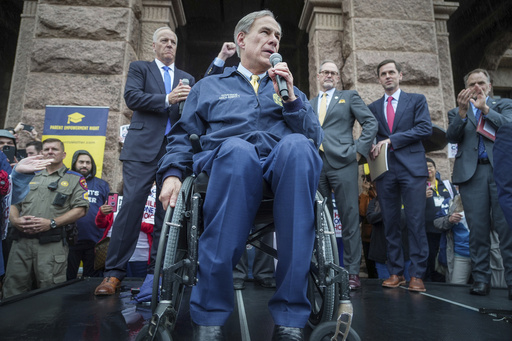Millions of dollars are being devoted to supporting candidates for Republican-led Legislatures who are in favor of school vouchers and are expected to play crucial roles in implementing school choice programs in various states across the nation. National pro-voucher advocates recently celebrated a victory after investing over $4.5 million in Tennessee’s primary election to safeguard and elect legislative candidates who are likely to back school choice proposals in 2025 when state lawmakers reconvene at the Capitol.
Similar efforts were made in the Texas primary election in May where advocacy groups spent at least $14.8 million to remove opponents of vouchers and replace them. Meanwhile, in Idaho, substantial funds were directed towards candidates with differing views on school vouchers in the rural state.
The significant funding for these campaigns is supported by prominent voucher influencers such as the School Freedom Fund, tied to Club for Growth; the American Federation for Children, founded by former Education Secretary Betsy DeVos; and Americans for Prosperity, a free-market group associated with the Koch family. These groups primarily focus on primary elections, as they are considered the most competitive hurdle to overcome in Republican-dominated states.
Thirty-two states in the U.S. have implemented some form of voucher program, with about a dozen states offering taxpayer-funded vouchers or scholarships that can be used at any public or private school regardless of income. Proposals for such programs are being considered in more states, with varying levels of legislative support.
Despite the push for school vouchers, some Republican leaders have faced resistance, particularly from members wary of diverting public education funds from their districts. Tennessee Governor Bill Lee had to abandon plans for universal school choice earlier this year due to lack of consensus within the GOP-controlled Statehouse. This prompted him to actively endorse candidates in specific legislative races this year, a departure from his previous neutral stance during primary elections.
While focusing on primary voters may secure victories in key state races, it can result in electing candidates who may not align with the broader electorate, according to political science experts. In Texas, Governor Greg Abbott celebrated wins for voucher advocates in the aftermath of the state’s runoff primary election, following a previous defeat of a voucher bill. Similarly, in Idaho, anti-school voucher Republican incumbents lost their reelection bids after outside spending in favor of school choice candidates.
American Federation for Children PAC CEO Tommy Schultz affirmed a commitment to increasing support for school choice-friendly candidates, with millions of dollars to be spent in upcoming elections to advance school choice policies across the U.S.


